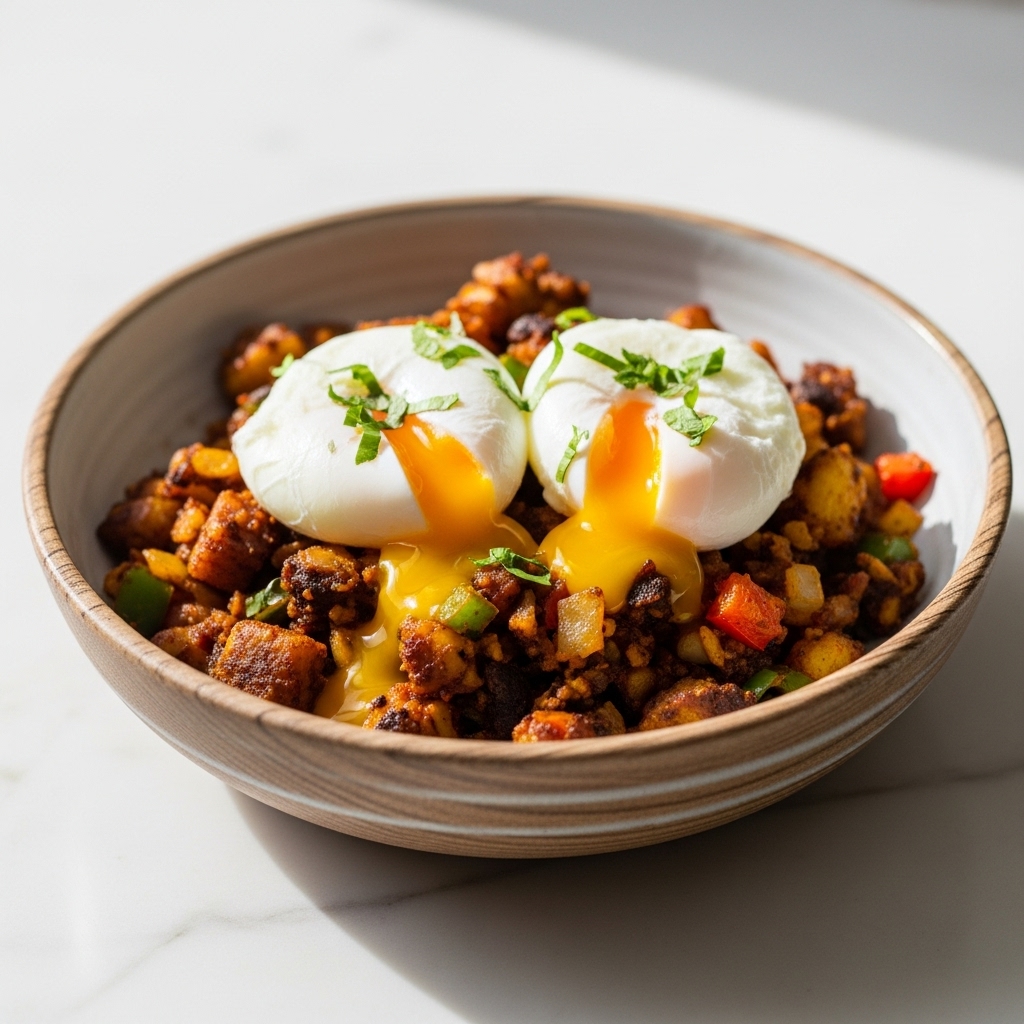
Nigerian Paleo Breakfast Bowl: Spicy Plantain Hash & Poached Eggs
Discover this mouthwatering, Paleo-friendly Nigerian Breakfast Bowl with spicy plantain hash and poached eggs, perfect for those seeking a flavorful and visually appealing meal that's both healthy and delicious.
Allergens
None
Ingredients
- 4 large plantains, peeled and sliced into 1/2
- inch rounds
- 2 tablespoons coconut oil
- 1 teaspoon ground cumin
- 1 teaspoon ground coriander
- 1 teaspoon smoked paprika
- 1/2 teaspoon ground ginger
- 1/4 teaspoon ground cinnamon
- 1/4 teaspoon cayenne pepper, or to taste
- Salt and black pepper, to taste
- 6 large eggs
- 2 tablespoons white vinegar
- Fresh cilantro leaves, for garnish
Instructions
- In a large skillet, heat the coconut oil over medium heat. Add the plantain slices and cook until golden brown on both sides, approximately 8 minutes per side.
- In a small bowl, mix together the cumin, coriander, smoked paprika, ginger, cinnamon, and cayenne pepper. Sprinkle the spice mixture over the cooked plantains, seasoning with salt and black pepper to taste.
- Carefully crack each egg into a separate ramekin or small bowl, then gently slide them into the skillet with the plantains, spacing them evenly apart. Cover and cook until the whites are set and the yolks are still runny, about 4 minutes.
- In a shallow saucepan, bring water to a simmer. Add white vinegar and create a gentle whirlpool with a spoon. Gently slide each egg into the whirlpool and poach for about 3 4 minutes, or until desired level of doneness is achieved.
- To serve, carefully transfer the spicy plantain hash to individual serving bowls, arranging the poached eggs on top. Garnish with fresh cilantro leaves.
Chef’s Insight
To get perfectly round plantains, trim off the tapered ends before slicing into rounds.
Notes
For a low-FODMAP option, use green plantains instead of ripe ones, and cook them until they are slightly tender but not mushy.
